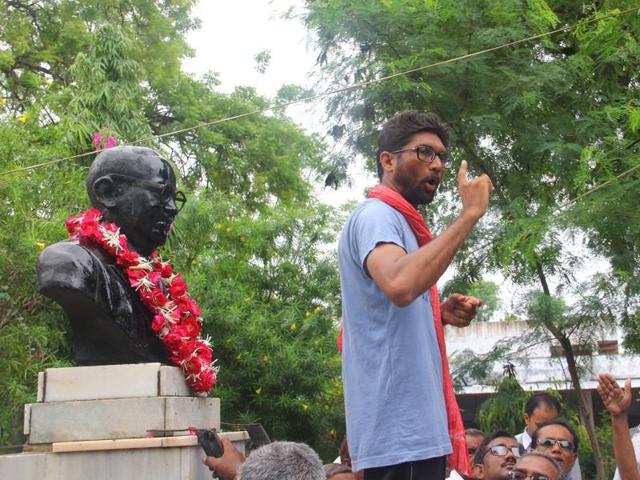Modi and Rupani are not on the same plane on the Dalit issue
Gujarat CM’s cherry picking of the demands of one aggrieved community (Patidar) over the other (Dalit) goes against the sentiments expressed by the PM
On August 7, Prime Minister Narendra Modi made an impassioned speech on the mounting atrocities on Dalits across India, condemning caste discrimination and lashing out at self-styled cow protectors accused of targeting Muslims and the scheduled castes.

“If you want to attack Dalits, attack me first. If you want to fire at Dalits, fire the first bullet at me. But the nation will not forgive us if attacks on Dalits continue like this,” Modi told a massive gathering of BJP workers in Hyderabad, the same city where Dalit scholar Rohith Vemula committed suicide on January 17.
Read | Attack me, shoot me if you want, but don’t attack Dalits: PM Modi
Has the PM’s plea been internalised/absorbed by the party’s rank and file? It doesn’t seem so.
Speaking on the Dalit issue, new Gujarat chief minister Vijay Rupani told a national daily: “Uttar Pradesh is facing an election. Our elections are in December 2017, UP polls are in February 2017… There is a Dalit vote bank and Mayawati rules it …They have raised the Gujarat issue because, with Modi’s charisma … BJP can even form a government there… half the BSP has joined the BJP there. So to defame Modi, the BJP and Gujarat they come to Una”. In other words, Dalit don’t face any challenges in Gujarat, it’s just politics.
Read | Why Rupani is BJP’s chosen one: Equations behind the Gujarat gambit
Yet, when it came to the protests by the Patidar for reservation, Rupani was careful to say that they have a point and that will be looked into.
Read | ‘Cultural practices of caste Hindus obstructing justice for Dalits’
This cherry picking of the demands of one aggrieved community over the other goes against the sentiments expressed by the PM.
Read | Vijay Rupani: The man calling the shots in Gujarat is now the CM
This is hardly a good start for Rupani and reflects badly on the BJP at a time when the Dalit issue has become not just a national but an international issue.





